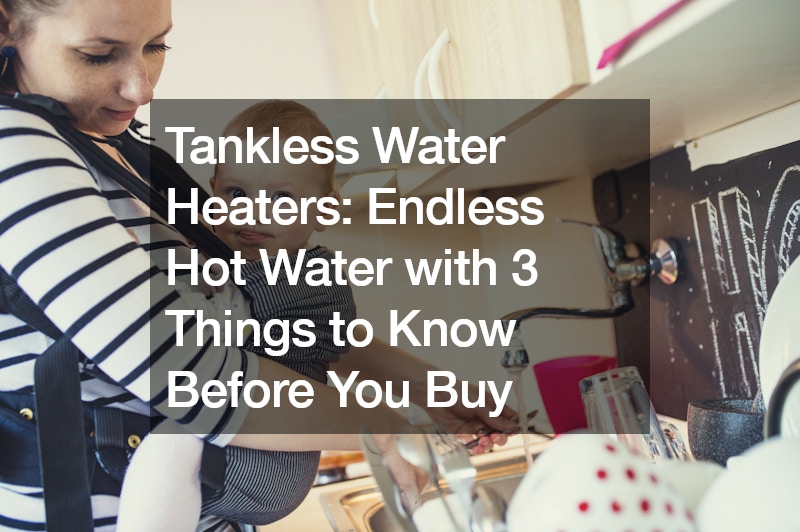The dream of never running out of hot water is a reality with tankless water heaters. These innovative appliances heat water on-demand, eliminating the need for a bulky storage tank. This translates to endless hot showers, dishwasher cycles that don’t leave you waiting, and potentially lower energy bills.
However, before you jump on the tankless bandwagon, there are a few key factors to consider.
Endless Hot Water, But Not Endless Benefits
The biggest advantage of a tankless water heater is its ability to provide a continuous stream of hot water. Unlike traditional tank heaters that have a limited reserve, tankless units heat water as it flows through the system. This is particularly beneficial for larger households where multiple hot water sources are used simultaneously. Imagine showering while the dishwasher runs and the washing machine fills – with a tankless water heater, you won’t experience any temperature fluctuations.
Maintenance Needs: Not a Set-and-Forget Appliance
While tankless water heaters boast a longer lifespan than traditional models, they do require regular maintenance. This is especially important in areas with hard water. Minerals like calcium can build up within the unit’s heat exchanger, reducing its efficiency. The frequency of maintenance depends on your water hardness and usage patterns. In areas with hard water and high usage, annual flushing might be necessary. This process involves running a vinegar or citric acid solution through the system to remove mineral deposits. Softer water areas or households with lower usage might require flushing every two to three years, or even less frequently.
Power Outages and Tankless Water Heaters: Not a Perfect Match
Tankless water heaters rely on electricity to operate. While some models use a small amount of electricity for controls and ignition, the actual heating process requires gas or propane. This means that during a power outage, your tankless water heater won’t function. Unlike traditional tank heaters that have a reserve of hot water stored, a tankless unit cannot provide hot water without electricity. If you live in an area prone to power outages, consider this a potential drawback.
Beyond Maintenance: Sizing and Installation Considerations
Tankless water heaters come in various sizes, measured in gallons per minute (GPM). This rating indicates the amount of hot water the unit can deliver at a specific temperature rise. Choosing the right size is crucial. A unit with an insufficient GPM rating won’t be able to meet your hot water demands, resulting in lukewarm showers or inadequate water flow for multiple appliances. Consulting a qualified plumber is recommended to determine the appropriate size for your household’s needs.
Installation of a tankless water heater is typically more complex than a traditional model. Depending on the unit’s fuel source (gas or propane), additional venting and gas line installation might be necessary. This can add to the overall cost compared to a traditional water heater.
Is a Tankless Water Heater Right for You?
Tankless water heaters offer a compelling solution for those seeking endless hot water and potentially lower energy bills. However, the maintenance requirements, potential for cold showers during power outages, and upfront installation costs need to be factored in. Consider your water hardness, household size, and hot water usage patterns before making a decision. Consulting a qualified plumber can help you determine if a tankless water heater is the right fit for your needs and budget.
Conclusion
Tankless water heaters offer a compelling solution for those seeking endless hot water and potentially lower energy bills. However, it’s important to weigh the benefits against the maintenance requirements, power dependence, and potential freeze protection needs before making the switch. By carefully considering these factors and consulting with a professional, you can determine if a tankless water heater is the right choice for your home.
.


